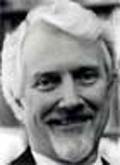Robert Salisbury, PhD, professor emeritus of political science in Arts & Sciences and an expert on how lobbyists and interest groups work inside the Beltway, died April 9, 2010. He was 79.

Robert Salisbury
Salisbury, the author of many books on urban government, focused his research on how Washington, D.C., power brokers interact to make national policy. His wide-ranging research on American politics explored such topics as the role of interest groups, the intersection of religion and politics, voter behavior and political participation.
Salisbury joined Washington University in 1955 as a political science instructor. He served as chair of political science from 1966-1973 and from 1986-1992. He was the Sidney W. Souers Professor of American Government from 1982-1996 and director of the university’s Center for the Study of Public Affairs from 1974-1976.
“Bob Salisbury was a key player in building the university’s political science department into one of the most respected in the country,” said William Lowry, PhD, professor of political science. “He not only hired and trained many scholars who are still active in the profession today but he also served as a role model to a lot of us.”
In the mid-1990s, along with professors Gerald Early, PhD, and Wayne Fields, PhD, he helped develop the university’s multidisciplinary program in American Culture Studies in Arts & Sciences.
Fields, who co-taught a course with Salisbury, described him as someone who represented the university at its best. “Bob was truly a great citizen of the entire university,” Fields said. “He was a friend to all and someone who reached out to colleagues well outside his discipline.”
Salisbury also served as consultant to the U.S. Conference of Mayors, the U.S. Office of Education and the National Institutes of Health. In 1990, he was named a Guggenheim Fellow and studied as a resident scholar at the Rockefeller Foundation Study and Conference Center, Bellagio, Italy.
His research explored how the electoral process and campaigning have been influenced by (and are contributing to) the decline in civic responsibility and sense of community in America. He was among the first to lament that politics was becoming increasingly partisan with opposing factions squaring off along party lines and refusing to make tradeoffs.
Describing his research interests, Salisbury noted that his latter work focused on various aspects of American pluralism.
“Inasmuch as I believe that politics is profoundly shaped by the deeper culture, I have invested a good deal of research and writing effort in studying such matters as the local community, religious institutions, the arts and sports as they operate in American society, past and present,” he said.
“This agenda is obviously enormous in its scope and complexity, and I am happy to say that I have no expectation of completing it.”